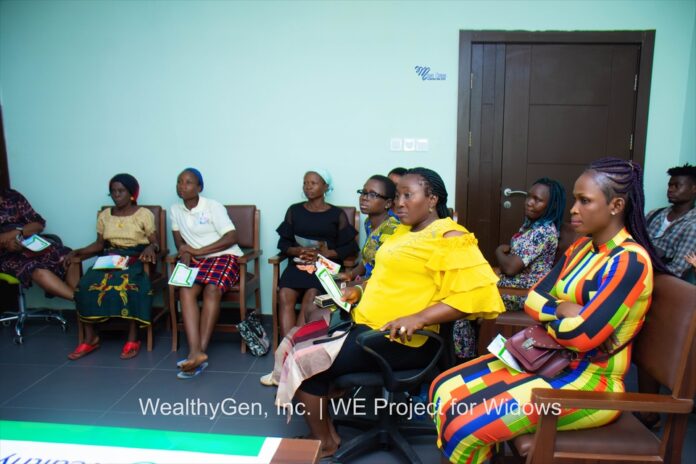A recent article by Dube, M. (2023), titled “The challenges facing widows in African contexts: A literature review” published in International Journal of Research in Business and Social Science by SSBFNET, shows that widows in Africa face multiple challenges such as poverty, discrimination, violence, stigma, and health problems.
This study explores the challenges facing widows in African contexts. The author employed the capability approach and the social exclusion framework to analyze the situation of widows in Africa and how they are deprived of basic human rights and opportunities. However, the author identifies four main challenges that widows face in Africa: poverty, stigma and discrimination, violence and abuse, and legal and policy barriers. As a result of these challenges, the author explores the coping strategies and resilience factors that widows employ to survive and thrive.
“
Widows in Africa face diverse challenges, including poverty and discrimination, necessitating gender-sensitive interventions for empowerment and societal transformation– Dube, M. 2023
The Coping Strategies and Resilience Factors that Widows Employ to Survive and Thrive
Social support: Widows rely on their family, friends, community, and religious groups for emotional, material, and spiritual support.
Economic empowerment: Widows engage in various income-generating activities, such as farming, trading, and crafts, to improve their financial situation and independence.
Education and awareness: Widows seek to acquire knowledge and skills that can help them cope with their challenges, such as legal rights, health care, and literacy.
Positive attitude and self-care: Widows adopt a positive outlook on life, practice gratitude, forgiveness, and optimism, and take care of their physical and mental well-being.
How the Study was Conducted
The authors employed various databases and websites for relevant articles published between 2000 and 2019, using keywords such as “widow”, “Africa”, and “challenges” and also used snowball sampling to identify additional sources from the references of the selected articles. The authors screened the titles and abstracts of the articles to exclude those unrelated to the topic, duplicated, or inaccessible. The study also explores inclusion and exclusion criteria based on the geographical location, language, and quality of the articles, and 51 articles for the final review were used. In addition, the authors employed a thematic analysis approach to identify and categorize the main themes and subthemes that emerged from the literature.
What the Authors Found
The author found that widows in Africa face multiple challenges such as poverty, discrimination, violence, stigma, health problems, and lack of access to education, health care, and legal rights. The challenges vary by context depending on factors such as culture, religion, ethnicity, age, education, and marital status of the widows. The study also found that there is a gap in the literature on the experiences and needs of widows in Africa, especially in relation to their psychological well-being, coping strategies, and resilience.
Why is this Important
This study underscores the urgency of tailored, gender-sensitive interventions to address the multifaceted challenges widows face, advocating for comprehensive strategies that empower widows to overcome societal biases and achieve their full potential. It also points to critical gaps in research and policy advocacy, urging further exploration of the unique needs of widows for more inclusive and targeted support. Widows, often vulnerable and marginalized, confront loss of rights, property, and social standing, along with enduring stigma and harmful traditions. Additionally, the study emphasizes the invisibility of widows in official records and the underrepresentation in research, necessitating a concerted effort to recognize and include them in policies and programs. The acknowledgment of widows’ diversity and resilience underscores the importance of acknowledging individual experiences, challenges, and coping mechanisms, contingent on factors like age, ethnicity, culture, and religion. Empowering and supporting widows not only enhances their lives but also positions them to contribute meaningfully to their families and communities.
What the Authors Recommend
- The author recommends that widows should be given access to education, skills training, microfinance, land rights, and social support networks to improve their livelihoods and autonomy.
- The author also suggests that widows should be protected from discrimination, violence, stigma, and exclusion based on traditional customs and beliefs that undermine their dignity and human rights.
- Widows should be represented and involved in the formulation and implementation of laws and policies that safeguard their interests and welfare, such as inheritance, marriage, and property rights.
- In addition, the study argues that widows should be recognized and valued as productive and contributing members of society, and their issues and needs should be made visible and addressed through various media and platforms.
In conclusion, this comprehensive exploration of the challenges facing widows in African contexts sheds light on the urgent need for tailored, gender-sensitive interventions. The study emphasizes the multifaceted nature of obstacles, ranging from poverty and discrimination to violence and legal barriers, urging a holistic approach to empower widows and address societal biases. The identified coping strategies, including social support, economic empowerment, education, and a positive attitude, underscore the resilience of widows in navigating adversity. Importantly, the study calls attention to critical gaps in research and policy advocacy, emphasizing the invisibility of widows in official records and the underrepresentation in research. The recommendations put forth advocate for access to education, skills training, and legal protection, highlighting the importance of recognizing widows as productive contributors to society. This study not only underscores the unique needs of widows but also serves as a compelling call to action for inclusive and targeted support, ensuring that widows can overcome challenges, reclaim their rights, and contribute meaningfully to their communities.
















 The African Research (AR) Index is a comprehensive scholarly directory and database focused explicitly on journal publishers that publish and disseminate African research.
The African Research (AR) Index is a comprehensive scholarly directory and database focused explicitly on journal publishers that publish and disseminate African research.

